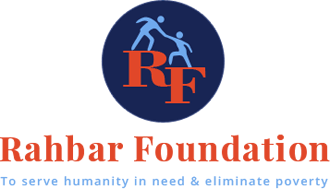
Click here to see if your employer will match your donation.
Click to see if your company provides grants for volunteering.
Drinking Water And Sanitation
Water is a basic need for human life and must be available in adequate and sufficient quantity and quality. Poor sanitation and hygiene conditions are a cross-cutting health concern in villages of developing countries. Poor sanitation leads to diarrheal diseases, which are responsible for deaths of young children under five. Poor personal and household hygiene also lead to trachoma, dengue fever, increased rate of infections, and a number of other diseases. A home with standing water can become a breeding ground for mosquitoes and increase malaria not just for that family, but for the entire neighborhood.Due to Lack of potable water, villagers even drink from irrigation ditches, ponds, lakes and streams that contain high rates of harmful micro-organisms. Drinking of this unhealthy water causes frighteningly high infant mortality, shorter life spans and reduced energy for livelihoods.The access of safe drinking water is limited and water shortages can pose a real threat to daily life and the health of the communities in villages. Sometimes these villagers face severe drought in summer and face drinking water shortage. Such people have to walk several miles to get the drinking water for their family.
Sanitation facilities in villages are alarmingly poor and millions of having no access to toilets. To address this sanitation problem the governments, NGOs, non-profit organizations, donor agencies have been working in their own way, often with very little rigorous effort. Still there is lot of attention need to be given on hygienic conditions. We organize workshops and educate village communities about the importance of household hygiene, personal hygiene, and sanitation through outreach programs. We also have partnerships with local schools, encouraging children to adopt personal habits of hygiene, and to help their schools and their families adopt small sanitation measures like having 'tippy-taps' outside of latrines. Tippy taps are locally-constructed hand washing stations that make it easy for people to follow good hygiene practices.
To teach about the importance of safe water, we hold village outreach programs to educate about the importance of gathering water from clean water sources. We also educate villagers about the nature and danger of water-borne diseases contracted by drinking contaminated water. We install bore-well water pumps in villages so that clean water is available to them. To install one bore-well hand pumps it requires at least $600. One village needs at least two pumps and we will install more and more pumps in different villages and different regions.
Bring someone Safe Water with monthly Donation of $50, $100
Rahbar Foundation is trying to transform more lives with safe drinking water with your generous support, please consider making a monthly donation. It only takes a few minutes for you and that will help others for a lifetime. Your support gives poor villagers hope, good health and communities a safe future. Please donate online one time or monthly recurring donation at our website using safe and secure PayPal system. Please click on DONATE NOW to give good life to the villagers with clean water.











